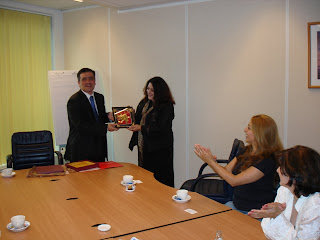There were no armed people among more than 130 civilians killed and 700 wounded by the troops. January 20, 1990, became a national tragedy, victims of which represented Azerbaijan’s diverse and multi-cultural society. Among them were a 7-year old boy, a newly married couple, an 80-year old man, a 16-year old girl, a young doctor shot in an ambulance while helping another victim, and many others.
According to “"Black January in Azerbaijan," a report by Human Rights Watch, "Among the most heinous violations of human rights during the Baku incursion were the numerous attacks on medical personnel, ambulances and even hospitals."” The report concluded that: “"Indeed the violence used by the Soviet Army on the night of January 19-20...constitutes an exercise in collective punishment... The punishment inflicted on Baku by Soviet soldiers may have been intended as a warning to nationalists, not only in Azerbaijan, but in other Republics of the Soviet Union."
Despite the curfew and repression which followed January 20, that day became a turning point for Azerbaijan and strengthened determination of the people to build their own independent country. In 1991, Azerbaijan became independent and in April of 1993 the first among the former Soviet republics with no Russian military bases on it soil.
In commemoration of those who died 18 years ago, the people ofAzerbaijan will once again pay tribute to the victims of Black January who paid the highest price for the independence of their country.
See also: Azerbaijanis call it "Black January" meaning









